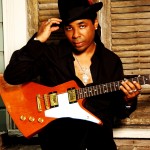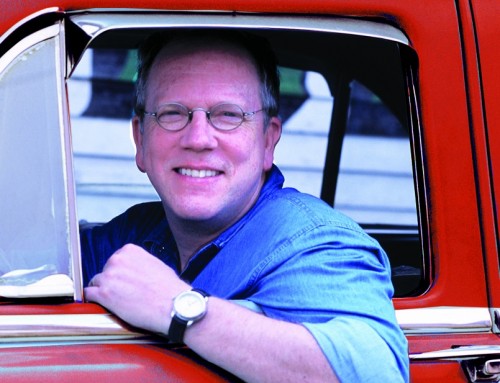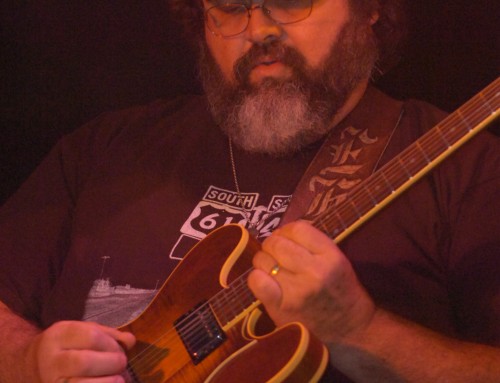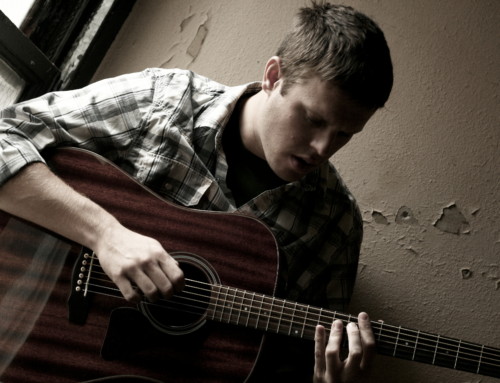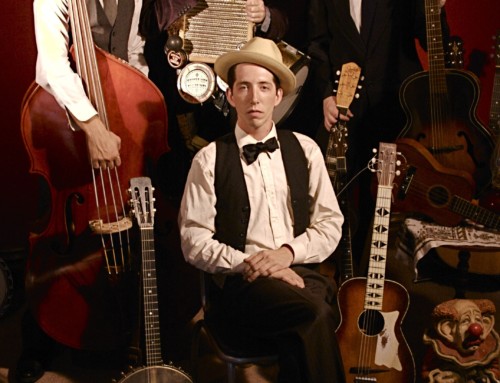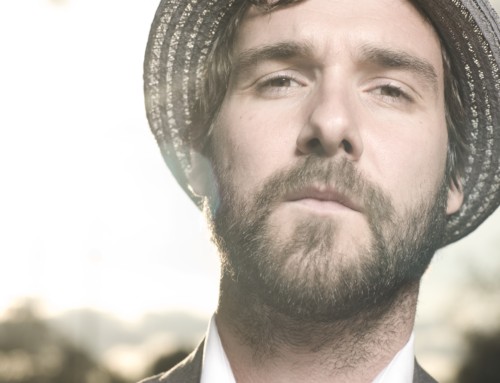I’m still not sure what “river music” is exactly, or which musicians play it, but I know it when I hear it. Chris Thomas King, born in the Mississippi River city of Baton Rouge (Louisiana), plays it. King’s father, Tabby Thomas, was a well-known blues musician who opened a blues club when King was a teenager. King was steeped in traditional blues, learning from and playing with many local blues legends before starting on his own path to make a living as a musician after signing with Arhoolie Records in his early 20s.
King’s musical career has been marked by a balancing act, trying to incorporate contemporary influences in his blues, while maintaining respect for the genre’s traditions. Judging by the reviews I’ve read, his efforts haven’t always pleased the critics. But you can’t fault a guy for trying.
King has recorded a dozen CDs, including 2006’s Rise that was a response to his experience living through Hurricane Katrina. Playing the blues is only part of his resume, though. He has acted in films like Ray and O Brother Where Art Thou (he was honored with a Grammy Award for his contribution to the O Brother soundtrack.) as well as the HBO series Treme.
We talked by phone about his career, growing up, blues history, and the how the Mississippi River fits into our cultural mix.
River Song: Flow, Mississippi Flow (Rise, 2006)
Other Song You Shouldn’t Miss: Revelations (Dirty South Hip Hop, 2002)
What did you listen to growing up?
As far as the style of music, I listened to all kinds of music. When I say all kinds of music, I don’t really recall listening to polka,
Where did you hear it?
Music was in the home. My dad had a band; he had a day job, but he had a band, as well. He always played music. In the world that we grew up in, music was not an end all be all. It was something you did because you enjoyed it, or it supplemented your income. Nobody in my community really “made it” through music. That doesn’t mean that nobody in my community didn’t have hit records or sell millions of records, but they still had their day job. Slim Harpo was a good friend of my dad’s. He sold millions of records; [bands like]the Rolling Stones recorded his music. But he drove a junk trunk. On weekends, he’d be back home working on his truck.
It was a musical world that we could touch, and feel, and see. It was very blue collar. There were no stars in anyone’s eyes. So I wasn’t really looking at music as a means to make a living or be a star or something. It was something I grew toward and was excited by and it didn’t take long before I decided I do want to try to make this a living, that maybe I could just get through life just playing my guitar.
How do you describe what you play?
The blues.
It seems like the blues is one musical style with ties to the river, at least to the communities along the river. Do you think that makes sense to say that?
Well, I guess most people don’t think of it like that, but when you say it, it’s pretty obvious that the river played a role in how the music spread.
It seems like there were so many places along the river that had a lot of different people passing through at various times, and there was probably a lot of cross-fertilization from all these folks coming in contact with each other.
You know, before there were highways, there was a river. New Orleans port is still one of the busiest ports in America. Today the river doesn’t play a role in music at all, but at one time, that’s how people traveled.
I’m making a list of songs about the Mississippi. I thought this was going to be quick and easy but I’m approaching 500 songs. I have songs from just about every genre and time period, including a lot of recent songs. So the river still has some importance in terms of cultural consciousness even if the styles of music you might attribute to the river is less important than it used to be. You have at least one song that mentions that river—Flow, Mississippi Flow.
Yea, I do I guess. I’m sure that’s not the only one in my catalog, but that’s a song that kinda uses the river as a metaphor. As you mentioned earlier, the river certainly played a role in how the music spread. A lot of people first heard Louis Armstrong play on a riverboat.
When they shut down Storyville in New Orleans in 1917, a lot of those musicians left, started working on the river, and eventually left and went other places to continue their careers, they were pretty much shut down. You probably had a big pickup with Louis Armstrong and other musicians getting on boats and starting to travel a lot more.
One of the things I was curious about is, how do people see the river in Louisiana, around Baton Rouge and New Orleans. Do you have a sense of what people’s general attitudes might be about the river?
Generally people don’t think about it. It’s just like people don’t think about the moss-covered trees down here. Maybe when a relative comes to visit, you might notice it because it sticks out, it’s like “Wow” but you just take that thing for granted. The river is totally taken for granted. It’s used mostly as a dumping ground for chemical plants here in Louisiana. Baton Rouge, which is a river town, has finally come around to modernizing their downtown and built an amphitheater down there, with a permanent stage, along the river. So the city planners are thinking about the river, trying to take advantage of what they have that is historical and build upon that. Baton Rouge is still trying to find itself in the 21st century.
But as far as New Orleans goes, you know the French Quarter is along the river, but you’re not on the river, so to speak. It’s not like you have clubs and stuff like that on the river. Cause you have this big levee up there, but the funny thing about being in the French Quarter is that you can be walking down Royal Street and look down toward the river and see a boat and the boat is higher than you are. You’re looking up because you’re in a bowl. The river is higher than the city. That can be jarring to someone who isn’t used to that. But as far as the river being intertwined with the entertainment of the city, not hardly except for some of the cruises that might leave there and go out for a while and might have some music on it. But it won’t have the best musicians in town. It’s not a great gig, at the moment.
My impression is that folks in the South have a different relationship with the river than they do in the northern reaches. Up north, you’ll see a lot of people on the river in boats, fishing, even swimming in the river. Down south, I don’t know if people are even fishing much, if the river is seen as polluted and dangerous.
You’re getting the wrong impression. You asked me about the river as the river relates to music. A lot of cities were established around some body of water. Baton Rouge happens to be one of those cities; New Orleans is one, and up to Natchez and on up. But as far as activities on the river, yea, I’m about to do a reality show about a riverboat captain. I don’t know if you’ve seen some of these reality shows about these gator guys that go out hunting gators and live on the river. There’s a whole culture there. There are people who make a living from crawfish and seafood and all kinds of things that come up that river. It’s a central part of south Louisiana.
Since Katrina, what do you make of the musical makeup of New Orleans? Do you think there is still a richness to the musical scene like there was before Katrina?
I played at the Music Factory on Monday. It’s a great old music store, two stories, they’ve got tons of vinyl in there. There’s no pop records, no R&B records; you won’t find a record by the Rolling Stones or Lady Gaga. But if you ask them about some obscure clarinet player from yesteryear, they’ll take you right to that section and pull out some rare scratchy archival video. Some of New Orleans’ finest musicians come to that store, get on their stage and perform right there and do CD signings and book signings. It’s a very cool vibe.
When I was there, just talking about what’s happening [in New Orleans music], there was way too many people in the place, standing outside, down the street; it was electric. Now a lot of these people were in town for Jazzfest but as far as the musical talent, the city is rich and deep with musical talent. There’s no doubt about that.
And as far as the musical style, it’s all over the place. You got some bands that are still doing the traditional Dixieland Jazz Band, you got the Dirty Dozen Brass Band. You got some traditional jazz and blues and gospel. But you also have people that are pushing the envelope a little and doing some different things. If you come and hear me play, you’re going to hear some folk music, some gospel, some jazz. The New Orleans sound is a mixture of a lot of different things. That’s one of the things that’s rich about it.
I think one of the reasons that it’s maintained that is because there is no real record business in this city. Even though it’s filled with great musicians, unlike Nashville, it hasn’t been turned into some type of music factory, so to speak. The business of music isn’t there. No major label; no publishing company; no big management firms. It’s just all club-related, it’s the clubs and the people flowing in and out of those clubs; that’s the culture. That’s what New Orleans was a hundred years ago and that’s kind of what the real music is today. Those places are changing all the time, but don’t change that much over time. If you hear a piano player, you’re gonna hear Professor Longhair, you’re gonna hear Fats Domino. The tradition still runs pretty deep here.
So I guess without a big presence for the music industry, then it frees musicians to do the kind of music that they want to play without trying to tailor something for a mass market.
No, they’re just in the business of selling beer. They’re not so much in the business of selling records as much as they are in the business of selling beer.
St. Louis author Kevin Belford published a book a couple of years ago about the pre-war history of the blues in St. Louis (Devil at the Confluence). His main point is that the narrative we tell about the development and spread of the blues—that it began in the Mississippi Delta and spread to other places from there—is oversimplified, that places like St. Louis had its own style of blues that developed independently of the Delta.
Well St. Louis definitely has their story to tell. I think just about any river city has its story to tell. And the St. Louis story should be told.
I’m happy to hear that people are starting to think about the blues beyond Robert Johnson, most people start there. And whether they get it right in this book or right or wrong in this other book, the point is that this music goes back at least 50 years before Robert Johnson. But there are no records, because it predated the record business as we know it.
